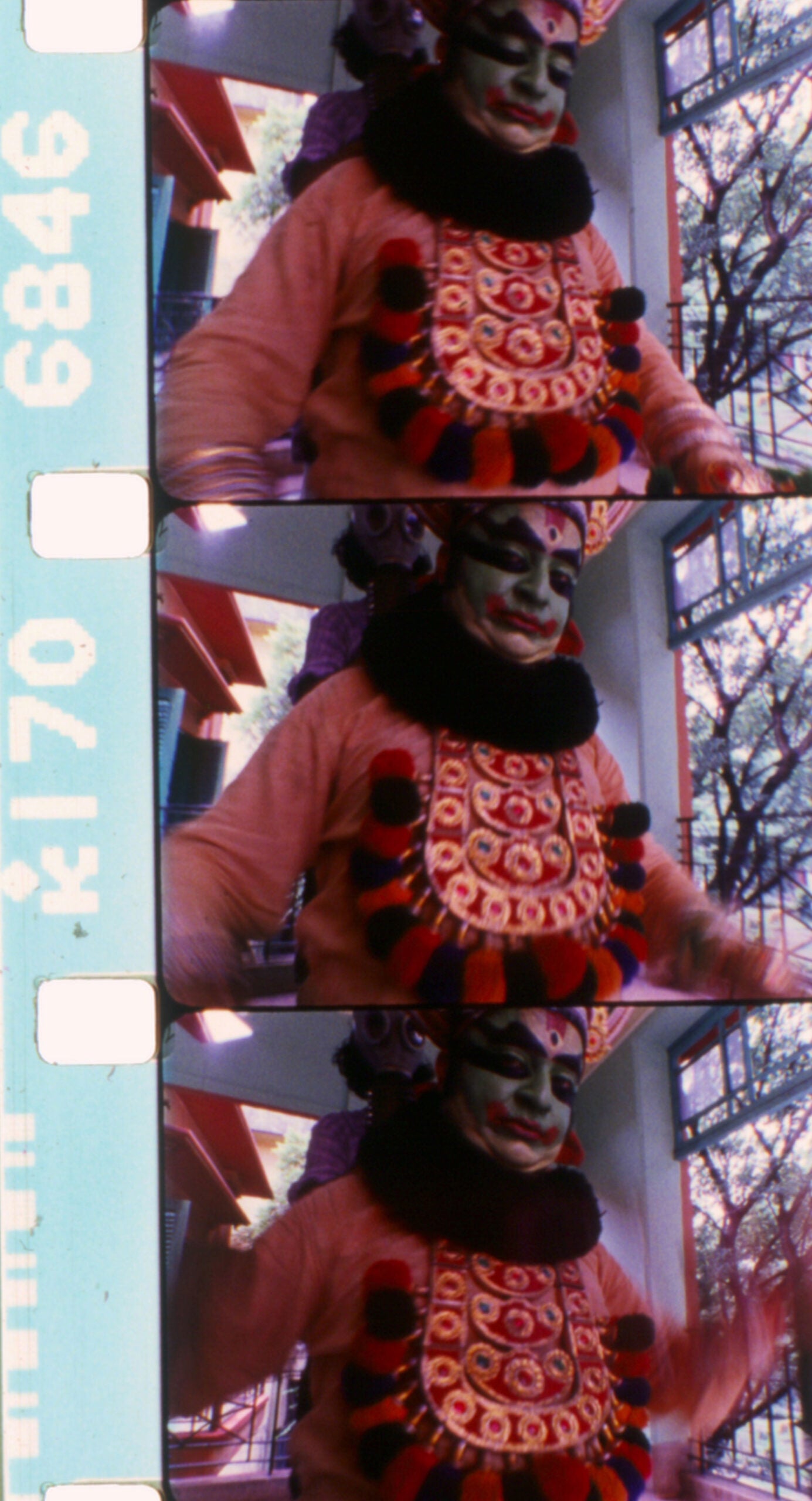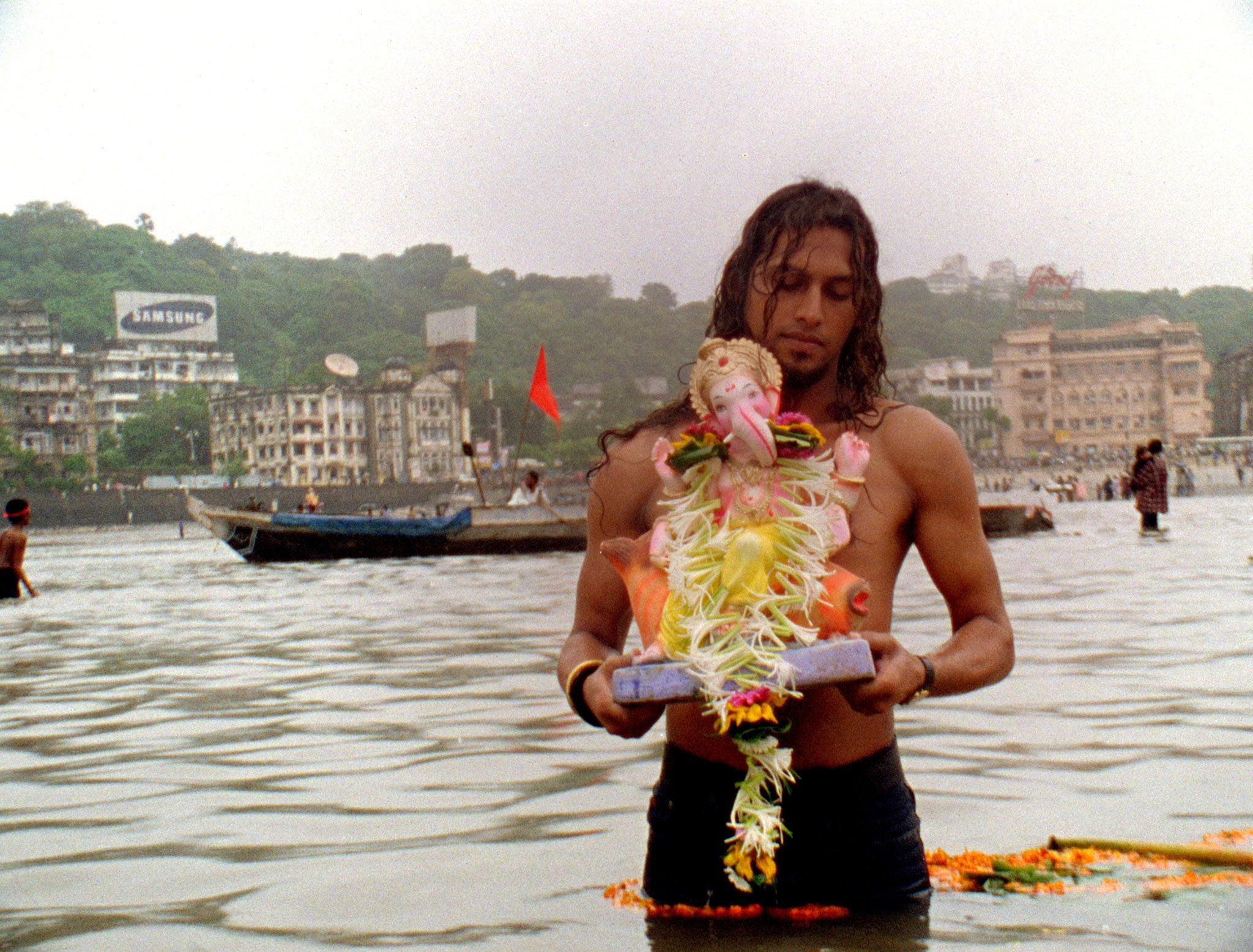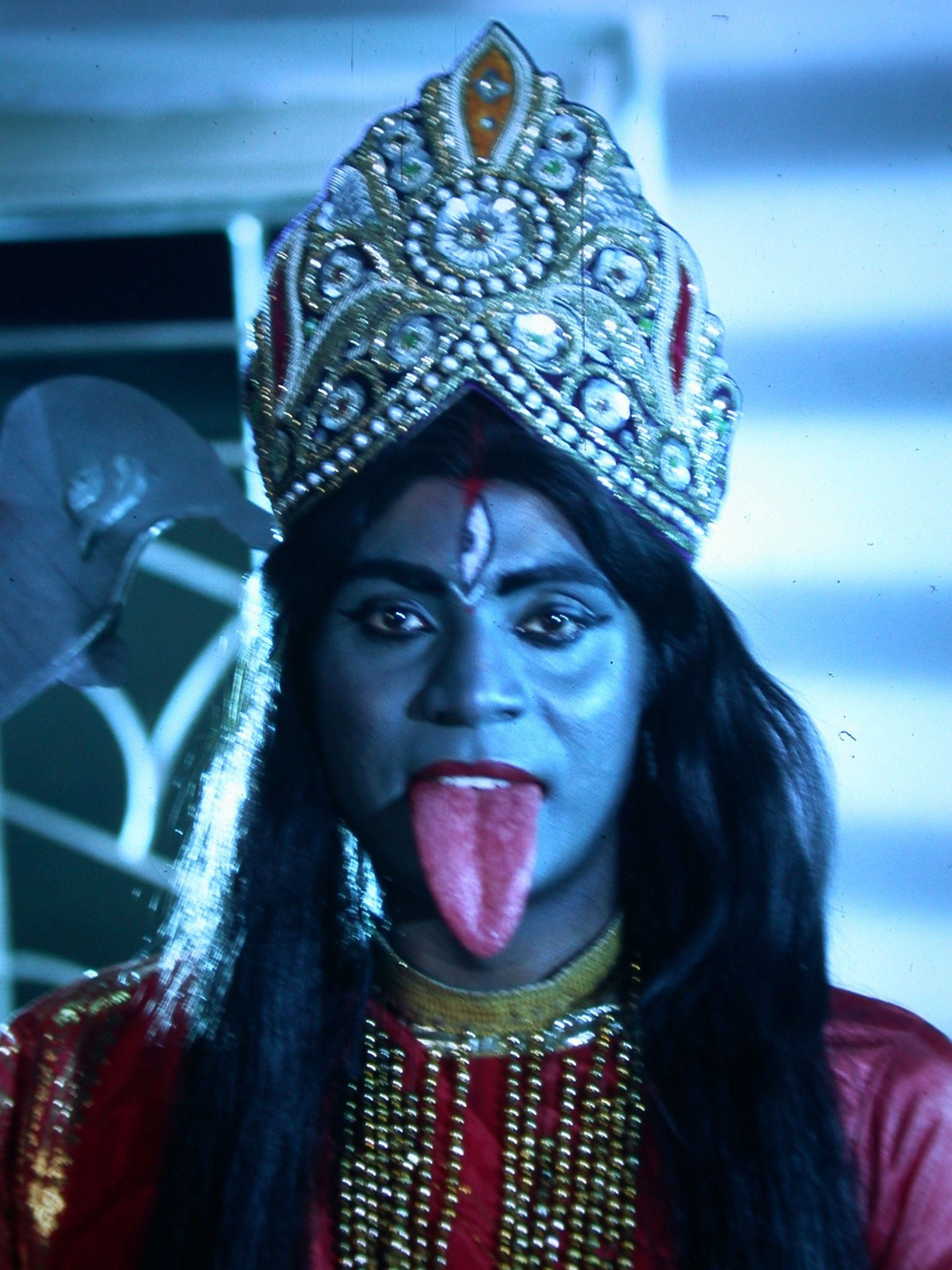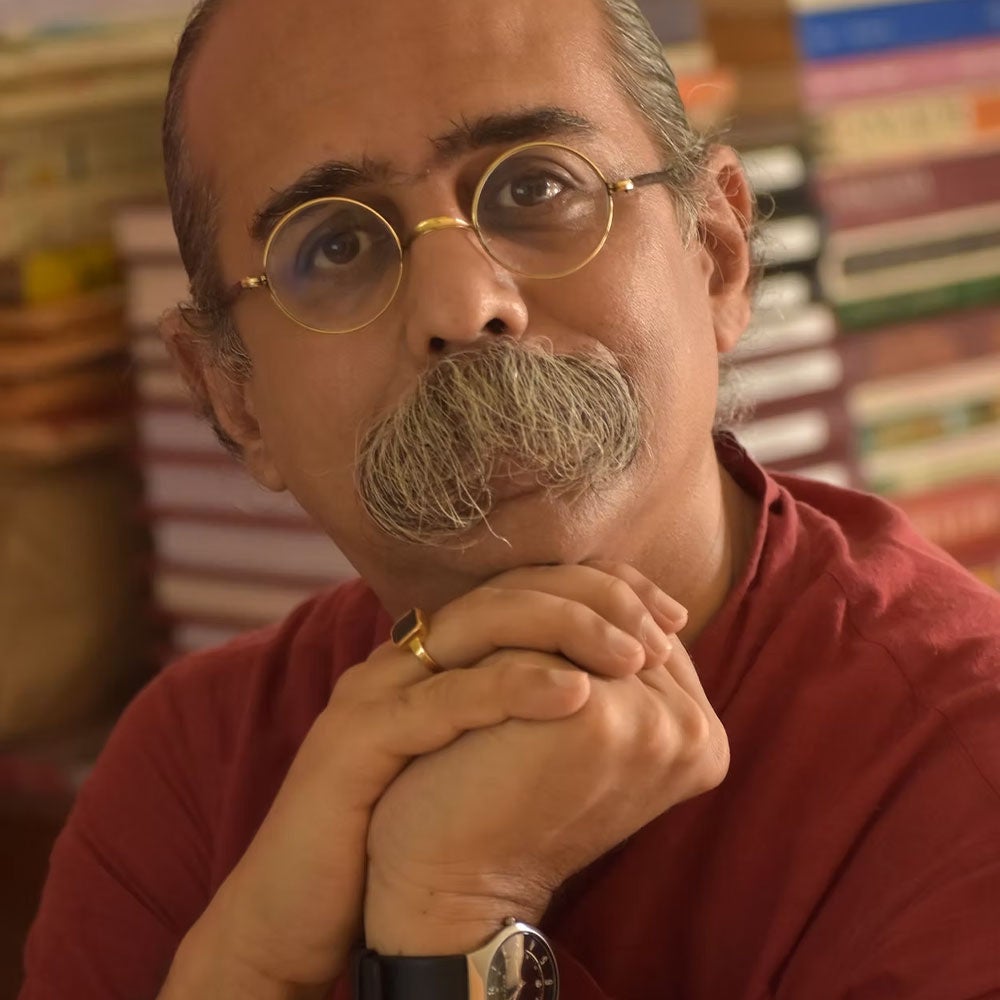KINGSTON, R.I. – May 12 – Prismatic Ground held its annual documentary and avant-garde film festival, at which Professor Ashish Avikunthak was awarded the prestigious Ground Glass Award. The event took place from April 30 through May 4 in New York City, where a curated program of his early short films made on 16mm was screened at Anthology Film Archives on May 3.
The selection curated by the festival director Inney Prakash included Kalighat Fetish (1999), a meditative exploration of the Mother Goddess Kali and ritual worship; Dancing Othello (2002), a complex fusion of Shakespearean drama with Indian performance traditions; End Note (2005), a cinematic interpretation of Beckett’s Come and Go centered on the intimate bonds between three women; and Vakratunda Swaha (2010), an elegy for a lost friend, merging personal footage with reflections on grief and remembrance.

“I am deeply honored to receive the Ground Glass Award from Prismatic Ground, a festival that has consistently celebrated the avant-garde as a necessary rupture in the fabric of cinematic convention,” said Avikunthak. “This recognition is especially meaningful because it comes from a community that understands film not just as visual storytelling but as a philosophical practice. My cinema has always been a quest—not for narratives, but for experiences that are ineffable, meditative, and sacred.”
Originally from India, Avikunthak is a filmmaker, film theorist, archaeologist, and cultural anthropologist. His cinematic journey began in the mid-1990s as a graduate student studying archaeology in Pune, India. Through this practice, his style emerged and addressed epistemological and ontological questions concerning time, death, and ritual; a departure from mainstream Indian cinema, which privileges spectacle and entertainment.
“I began by creating short films on 16mm, not as a mere creative outlet, but as a medium to articulate philosophical inquiries and explore the metaphysical dimensions of existence. For me, filmmaking transcends storytelling; it is about enacting experiences that evoke durationality and are imbued with a rigor of theory,” he said.
 Later, in his cultural anthropological training at Stanford University, Avikunthak gained an informed perspective on religious, cultural, and political practices in India that exist beyond mainstream narratives. This, combined with his interests as a filmmaker, shaped his approach to the art form by erasing the gap between the observer and the observed. His archeological training also plays a role in this development as his interpretation of the world around him deepened his quest to excavate the metaphysical questions about human existence.
Later, in his cultural anthropological training at Stanford University, Avikunthak gained an informed perspective on religious, cultural, and political practices in India that exist beyond mainstream narratives. This, combined with his interests as a filmmaker, shaped his approach to the art form by erasing the gap between the observer and the observed. His archeological training also plays a role in this development as his interpretation of the world around him deepened his quest to excavate the metaphysical questions about human existence.
While the award is a great honor, Avikunthak does not consider himself an avant-garde filmmaker. The concept of avant-garde emerged from Western art movements, which are ultimately incompatible with his own cinematic practice.
“My work does not seek to be “ahead” of anything or claim a vanguard position—terms that imply a linear progression that I fundamentally question. What I pursue is also not “experimental” in the Western sense but is deeply rooted in traditional Indian philosophical and aesthetic traditions. When I create durational cinema with extended takes, I am not breaking new ground in a modernist sense but rather connecting with ancient Indian concepts of time and ritual,” he said.
 Coming from a cultural heritage where performance, myth, and temporality are intertwined with the spiritual, receiving this award from a festival that recognizes the sacred within the experimental is “greatly affirming.” However, this award is not an endpoint; it’s an invitation to continue creating films that disrupt chronology, challenge representation, and evoke transcendence.
Coming from a cultural heritage where performance, myth, and temporality are intertwined with the spiritual, receiving this award from a festival that recognizes the sacred within the experimental is “greatly affirming.” However, this award is not an endpoint; it’s an invitation to continue creating films that disrupt chronology, challenge representation, and evoke transcendence.
“I thank Prismatic Ground for not only acknowledging my work but for placing it within a broader discourse of radical, political, and metaphysical cinema.”

